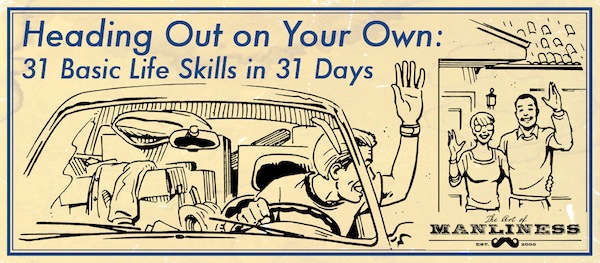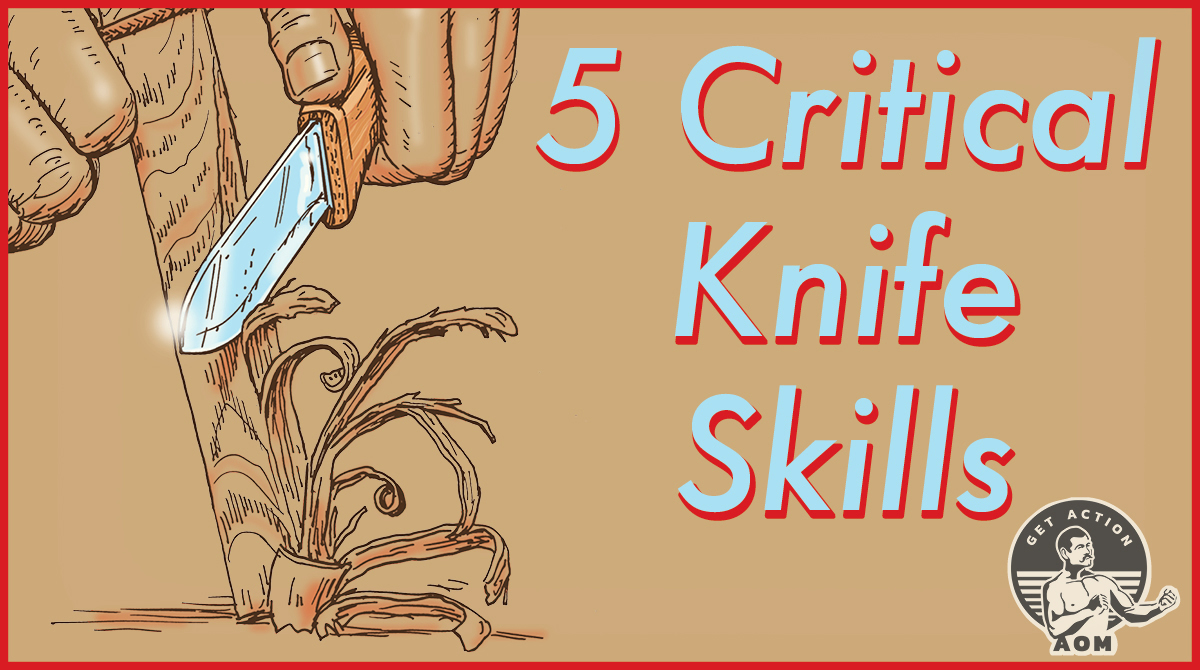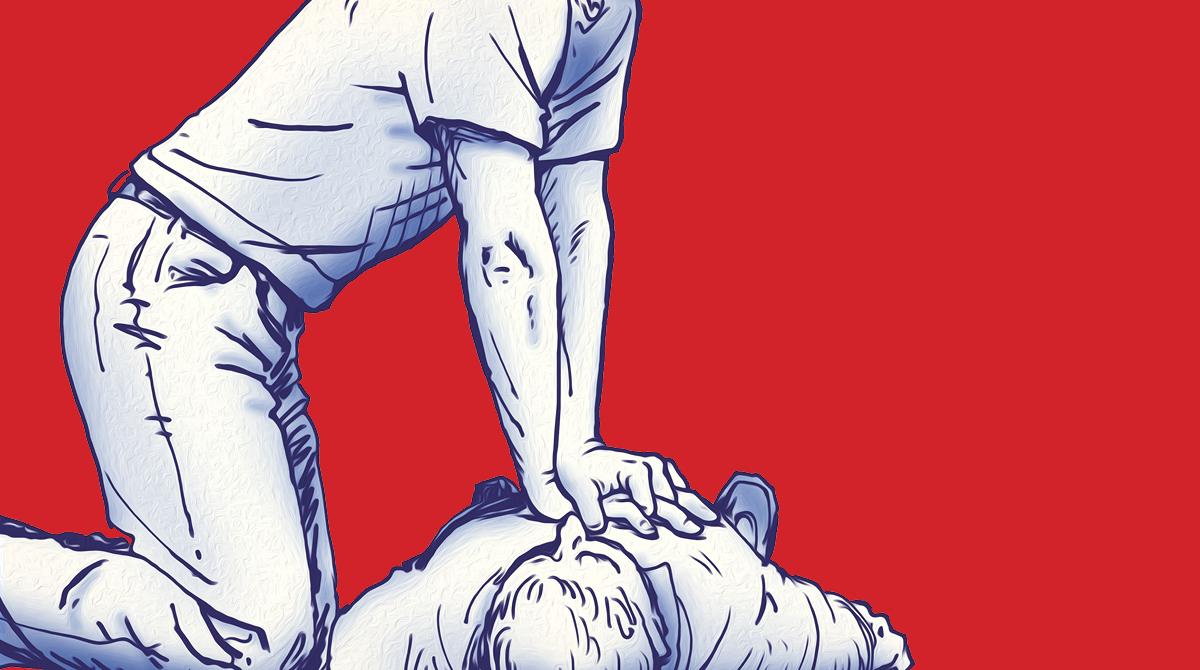
Editor’s note: This is a guest post from 911 dispatcher James Dillman.
At some point in our lives, most of us will have occasion to call for the police, fire department, or an ambulance. Our first inclination is to simply pick up the phone and call 911 because it is quick and easy. Not every call for emergency services, however, necessitates a call to 911. Here is a primer on when and how to call 911 and what to expect when you call. Keep in mind that these are general guidelines and if there is ever any doubt in your mind about the proper response to any given situation, you should always err on the side of safety.
This article will primarily address 911 calls that require a police response because that is where my experience lies. Depending on where you live, the dispatcher that answers your 911 call will probably handle any request for the police. If you need the fire department or EMS (Emergency Medical Services), the person answering the call may help you or you may be transferred to a fire and EMS dispatcher. Police, fire, and EMS dispatchers will essentially follow the same guidelines for obtaining the location of your emergency. Once the location is verified, the dispatcher will ask specific questions related to the emergency. Fire and EMS dispatchers are specially trained to give instructions for medical emergencies and these instructions should be strictly followed without argument. They may save not only your life, but also that of someone else.
When Should You Call 911?
A good rule of thumb is to call 911 when someone’s life, safety, health, or property is in immediate jeopardy. This would include most crimes, suspicious persons or vehicles, disturbances (aside from routine noise disturbances), fights, people with weapons, suicidal persons, or any incident involving someone having a dangerous mental or emotional episode. This also means that if you need the fire department or an ambulance to respond, you should typically call 911 without hesitation. Calling the police is frequently another matter as the police department gets all manner of requests. Some require an immediate response and others do not. Knowing when and when not to call 911 will keep the emergency lines open to people with true emergencies.
Police, fire, and EMS all have non-emergency numbers that are typically listed in the front of the phone book (or on your local city government website). These should be posted near all telephones in the home or business and saved in your cellphone. Generally, you should call the non-emergency number for the following:
1. Crimes with a time delay of over fifteen minutes providing there are no injuries and the suspects are not still on the scene, within view, or at a known location nearby. These would include thefts, stolen cars, forgeries, fraud, vandalism, harassment, trespassing, threats, and assaults that don’t require medical attention. Burglaries would fit into this category if the premises have been checked and the suspects are not on scene. An open or unsecure door or window that indicates a burglary has possibly occurred should be considered a crime in progress. You should call 911 and wait outside in a safe location until police arrive and secure the property. Once again, always err on the side of caution when a crime or suspected crime has been committed.
2. Traffic accidents with property damage only and do not present a serious traffic hazard.
3. Questions concerning laws, statutes, or ordinances. Do not call the police for legal advice that should be provided by a lawyer. The police are not lawyers and cannot offer legal advice due to liability concerns. Do not call EMS for medical advice. They cannot and will not provide it under any circumstance. They can only send you an ambulance and give instructions pertaining to the immediate medical situation.
4. Questions concerning arrests or prisoners.
5. Noise disturbances, like excessively loud music or parties.
6. Inquiries on vehicles that have been towed or impounded.
7. Directions to, or the location of, a specific place.
8. Suspected narcotics or vice (prostitution, gambling, etc.) activity not in progress.
9. Warrant information.
10. Missing persons, unless it is a child, someone with a mental or physical disability, or there are extenuating or suspicious circumstances.
11. Disabled vehicles, debris in the roadway, and damaged or malfunctioning traffic signs and signals that are not a serious traffic hazard.
12. Animal complaints that do not involve an injury.
13. Keys locked in vehicles unless there is a child or animal inside. (Many police departments have adopted a policy not to unlock unoccupied vehicles for liability reasons.)
14. Welfare checks, unless there are extenuating circumstances.
15. Information on traffic or parking citations or court appearances.
16. Power outages, water main breaks, potholes in streets, etc. (These calls should typically go to the appropriate city department and not the police, when possible.)
17. Inquiries on road and weather conditions.
18. Complaints on the police.
All of the above are calls that regularly come into 911 call centers by the dozens, or hundreds in larger jurisdictions, and are a serious detriment to real emergencies being promptly attended to. Pocket dials from cellphones and calls from children playing on the telephone or making prank calls are also a major problem. Do your part to keep the 911 lines available to those who really need it.
Many departments have civilian employees who take reports for certain minor crimes over the telephone. This is done to keep as many police personnel as possible available to respond to emergencies and to be proactive in the neighborhoods. Try to accommodate the police if they ask you to make your report in this manner. Do not expect the police to send out a detective and the crime lab to investigate the stereo stolen from your vehicle. If the officer responding to your call needs evidence collected, he will take the appropriate measures. You may have to wait an hour or more for the police to respond to a crime not in progress. You should typically not call the police asking when they will arrive unless the situation escalates or you’re convinced they have forgotten you. The police will always respond to emergency calls first. You would not want the police to ignore an emergency situation in your home or business in order to respond promptly to a loud music complaint that came in ahead of your call.
What to Expect When You Call 911
Now you know when to call 911. Here is what you should expect when you need to do so. First of all, if you call 911 and get a recording telling you to wait, you should wait as patiently as possible. 911 phone systems are set up to answer calls in the order that they come in. If you hang up and call back, you are simply putting yourself farther back in line. Many 911 centers are understaffed and on some busy holidays such as New Year’s Eve, Halloween, or July 4th, even fully-staffed call centers can get backed up quickly. Your call will be answered as quickly as possible. Waiting times on the non-emergency line can be even longer, as 911 calls are answered first. If your call can wait, try calling back later.
911 dispatchers are trained to obtain specific information regarding your emergency. They are typically referred to as the six W’s: where, what, when, who, weapons, and welfare.
1. Where: The first thing the dispatcher will typically ask you is the exact location of your emergency. If the emergency is in your home or business, you should be prepared to give the exact address. It is amazing how many people don’t know their own address or the address of their workplace. If you are calling on a landline, the exact address will typically show up on the dispatcher’s computer screen. Even so, the dispatcher will verify the location you are calling from. Humans enter the information in 911 systems and mistakes are sometimes made. There are occasionally glitches in the systems. The dispatcher knows this and will insist that you verbally verify your location. Technology is advancing rapidly, but most 911 centers do not have the ability to determine your exact location if you are calling from a cellphone.
Remember that apartments have a building number and street just like a single dwelling residence. Many apartment complexes have several buildings and numerous streets. For example, if you give your address as Rolling Hills Apartments #139, the police will likely not know where you are. They need your complete address including the apartment letter or number, if there is one. Many apartment buildings have secured entrances and require the police to be buzzed into the building or have a keypad with an entry code. Be prepared to give the dispatcher any additional information needed to get to your door. The also applies if you live in a gated community with a keypad code.
If the emergency is in a location that you do not have the address for, you must be able to provide the exact location to the dispatcher. Typically that will be the hundred-block (900-block of East 10th Street) or the nearest intersection (16th Street and Riverside). Be prepared to give additional information such as the name of the business or if it’s a residence, which side of the street it’s on, color of the house, description of vehicles in front or in the driveway, etc. You may also give the address of the location you’re calling from and tell the dispatcher that it’s three houses north of that address, or directly across the street or behind the address. Be as specific as possible if you don’t know the address. If you’re in a residence that you don’t know the address for, the dispatcher may ask you to find a piece of mail with the address on it.
In extreme situations, you may simply dial 911 and put the phone down if you are calling from a landline. It may not be feasible or safe for you to remain on the phone in certain instances. The dispatcher will send the police. Do not assume that the dispatcher knows your location if you call on a cellphone. It’s always better to call on a landline when you can do so safely and there is one available.
2. What: Tell the dispatcher exactly what you are reporting. A brief description is typically all that is necessary. The dispatcher does not need to know the circumstances that led up to whatever is occurring. Just tell him what is currently happening.
3. When: Tell the dispatcher when the incident occurred or if it is in progress. In many jurisdictions, the dispatcher will ask you to stop and stay on the phone while he dispatches help with the limited information you have already provided. Be patient and stay on the line until the dispatcher returns to the phone to get additional information. Keep in mind that the dispatcher is probably talking to you on the phone and the police on the radio simultaneously.
4. Who: The dispatcher will ask you for suspect information when that is relevant. This will include the number of suspects, a clothing description, whether the suspects are on foot or in a vehicle, and a description of any vehicles involved. The dispatcher will also ask for the direction of travel of the suspects and vehicles if they have left the scene. If you don’t know what direction they went, tell the dispatcher what street, business, or major landmark in the area they left toward.
When providing suspect descriptions, the dispatcher will first want to know what color of hat, coat, shirt, pants, shorts, skirt, or dress the suspect was wearing. Physical descriptions are not essential unless there is something distinguishing such as very tall or short, very overweight, or if the suspect has some other very unusual characteristic such as walking with a limp, or an amputated arm. Clothing descriptions are the easiest way for an officer arriving on scene to identify a potential suspect. Vehicle descriptions should include color, year (if available), make, body (coupe or sedan, van, SUV), and license plate (if available). Other distinguishing characteristics, such as damage to the front end or a door that is a different color from the rest of the vehicle should be noted.
5. Weapons: The dispatcher will ask if anyone has any weapons now or earlier in the incident. This not only applies to criminal suspects, but also anyone else involved in the incident that may have a weapon. Describe the type of weapon involved and give a clothing description of the person who has it. If someone has a gun, tell the dispatcher if it is a handgun (pistol or revolver) or long gun (rifle or shotgun).
It is imperative that you are cognizant of the laws in your jurisdiction concerning the possession and use of firearms. This is your responsibility. Be very aware that the police arriving on scene cannot tell the suspects from innocent parties and the police can be expected to do whatever they have to do to protect themselves. This could result in the injury or death of a police officer or an innocent citizen. If you or someone else on scene has a firearm, the dispatcher will likely ask you to secure your firearm and have you ask anyone else with a firearm to secure it before the police arrive if it will not compromise anyone’s safety. Strict adherence to the dispatcher’s instructions is imperative for all concerned.
6. Welfare: The dispatcher will ask if anyone needs an ambulance. Again, be aware that you may be transferred to a fire and EMS dispatcher and that you should stay on the line and give the necessary information.
Final Thoughts
There are a few things to keep in mind when calling 911. First of all, keep as calm as possible and try to listen closely to the dispatcher’s questions. Keep your answers as brief as possible and don’t ramble. Try not to repeat yourself. Don’t ask the dispatcher why he is asking you certain questions. He’ll only ask for the information he needs to handle your call quickly and get help on the way to you. You are most likely going to be suffering from some amount of stress when making your call. Try to be polite to the dispatcher. Don’t say, “Just send the police!” and hang up. Don’t tell the dispatcher to hurry. He’s going as fast as he can and that won’t get you help any sooner. The dispatcher is very concerned with the safety of the officers who are responding to your emergency and he will be very adamant about getting the information he needs. Don’t take it personally if the dispatcher seems demanding or nonchalant and uncompassionate. He isn’t, and he wants to help you. Don’t try to carry on a conversation with someone else in the room while you’re on the phone with the police. Give the information asked for as accurately and as quickly as you can and you’ll get the fastest response possible.
Always keep your personal safety in mind when calling 911. Do what is necessary to keep yourself and anyone else on the premises out of harm’s way. You may need to leave the location or lock yourself in a room. The information the dispatcher is asking for is very important, but it does not supercede your safety. It’s always a good idea to discuss potential emergencies with your family ahead of time. Formulate a plan that will keep everyone as safe as possible. If you’re in a larger community, the police department or 911 center will probably have a liaison available to speak to local organizations, church groups, or company meetings about safety at home and on the job. Invite them to one of your events.
Once again, these are merely guidelines and there are no hard and fast rules on when you should call 911. If you are in a situation that requires a response from a public safety agency, don’t waste time debating whether or not it qualifies as an emergency. If there is the slightest doubt, make the call to 911. Just be conscious of the fact that in many instances you will get the proper response by calling the non-emergency number and allow someone in urgent need of assistance to get a quicker response.
_____________________
James Dillman is a 911 dispatcher in the Indianapolis 911 center. The opinions and recommendations expressed in this article are strictly the author’s and do not necessarily reflect the opinions, policies, or procedures of his employer. Contact your local authorities with questions concerning recommended procedures for reporting emergencies in your jurisdiction.







